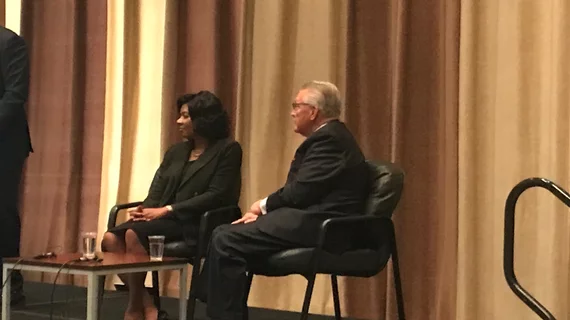Ascension CEO will step down at end of 2019
After a 15-year stint as the CEO of nonprofit health system Ascension, Anthony R. Tersigni, EdD, announced he’s stepping down from his role at the end of 2019.
Tersigni became president and CEO of Ascension Health in 2004 after serving as its chief operating officer since 2001, according to a statement. When Ascension was formed in 2012 as the parent organization of Ascension Health and its direct subsidiaries, Tersigni was the healthcare system’s first president and CEO.
He plans to relinquish control of Ascension Dec. 31, after which point he’ll continue to serve on Ascension’s healthcare investment fund executive committee and act as a consultant for the institution on an ongoing basis.
Stephen M. Dufilho, chair of Ascension’s board of directors, said in the statement Tersigni has been key to the development of a strategic plan that emphasizes extending healthcare to individuals in need and expanding the scope of Ascension’s reach.
“Never content to simply keep up with external trends, Tony has focused his time and energy on innovating and creating the future—leading transformation at Ascension to enable our mission of serving all persons with special attention to those who are poor and vulnerable,” Dufilho wrote.
The announcement of Tersigni’s retirement comes just two months after three high-ranking executives at Ascension confirmed they’d be leaving their roles. CEO of Ascension Healthcare, Patricia Maryland, DrPH, will be leaving after June; Joseph Impicciche, JD, MHA, will assume the newly created president/COO position in July; and John Doyle, executive vice president of Ascension, announced he’d be retiring come Dec. 31.

